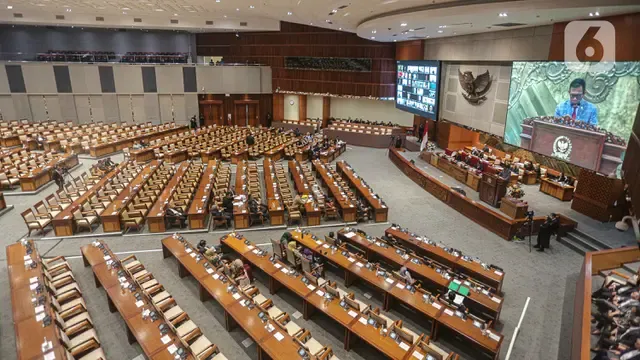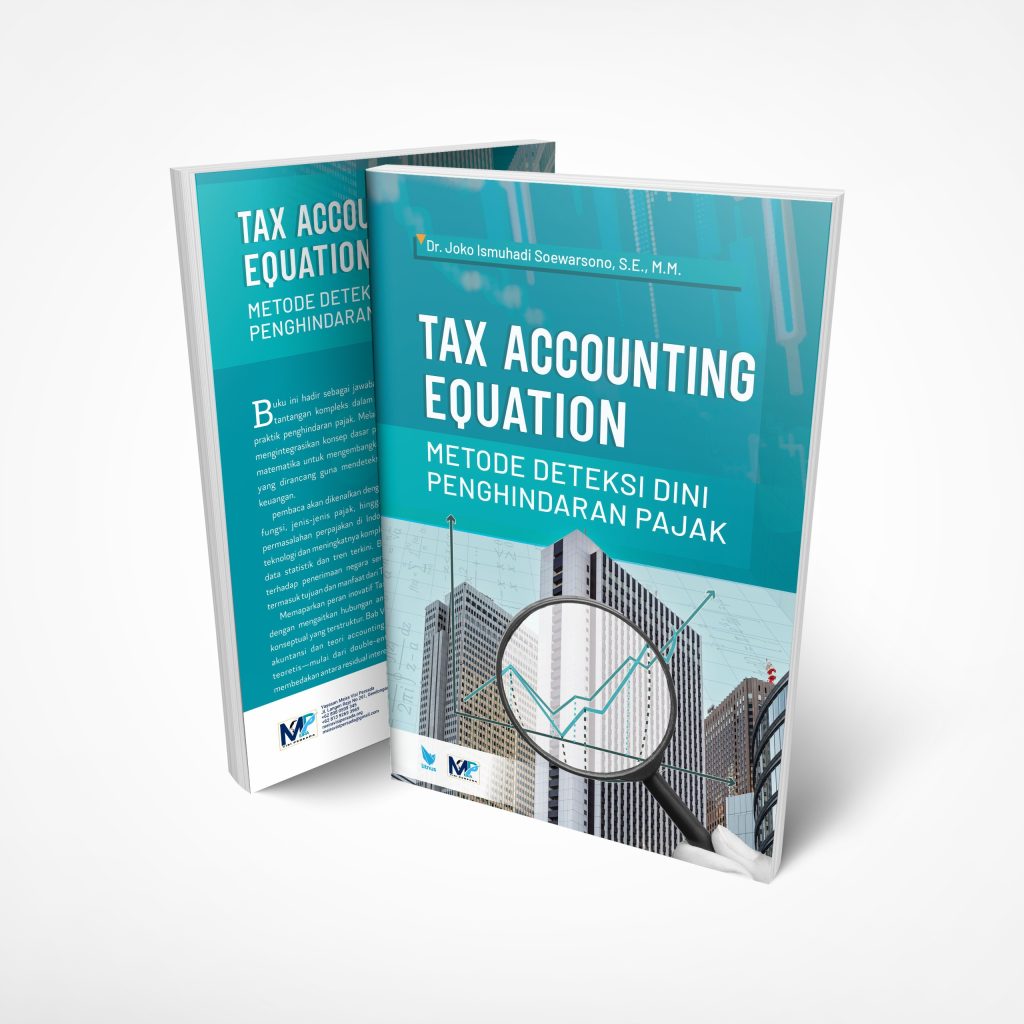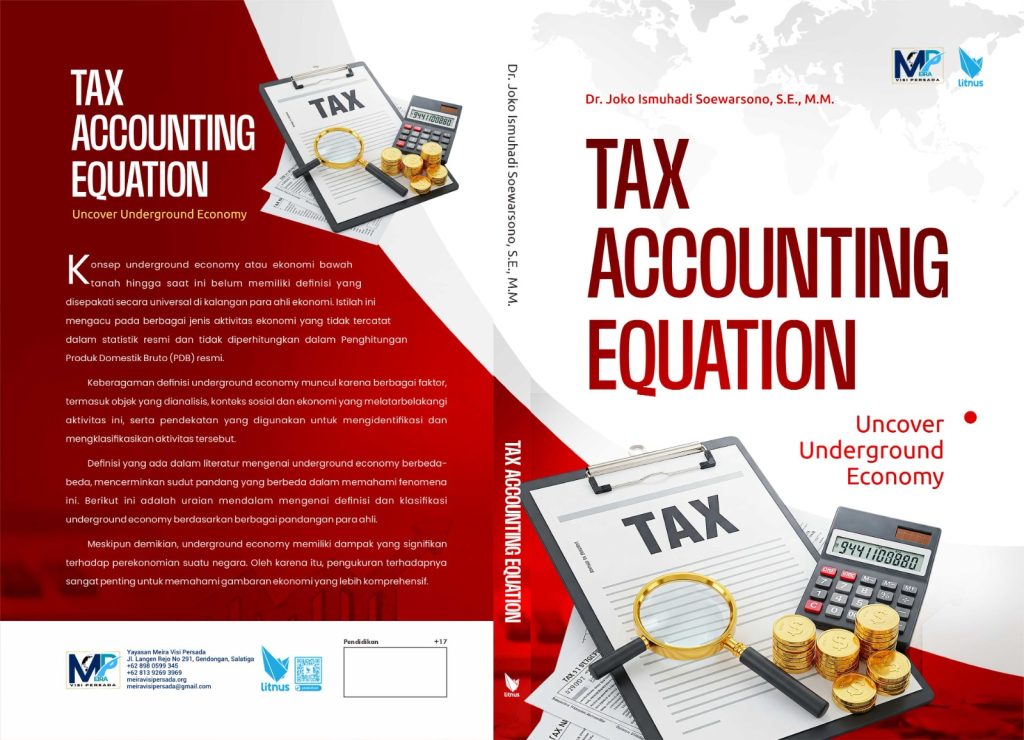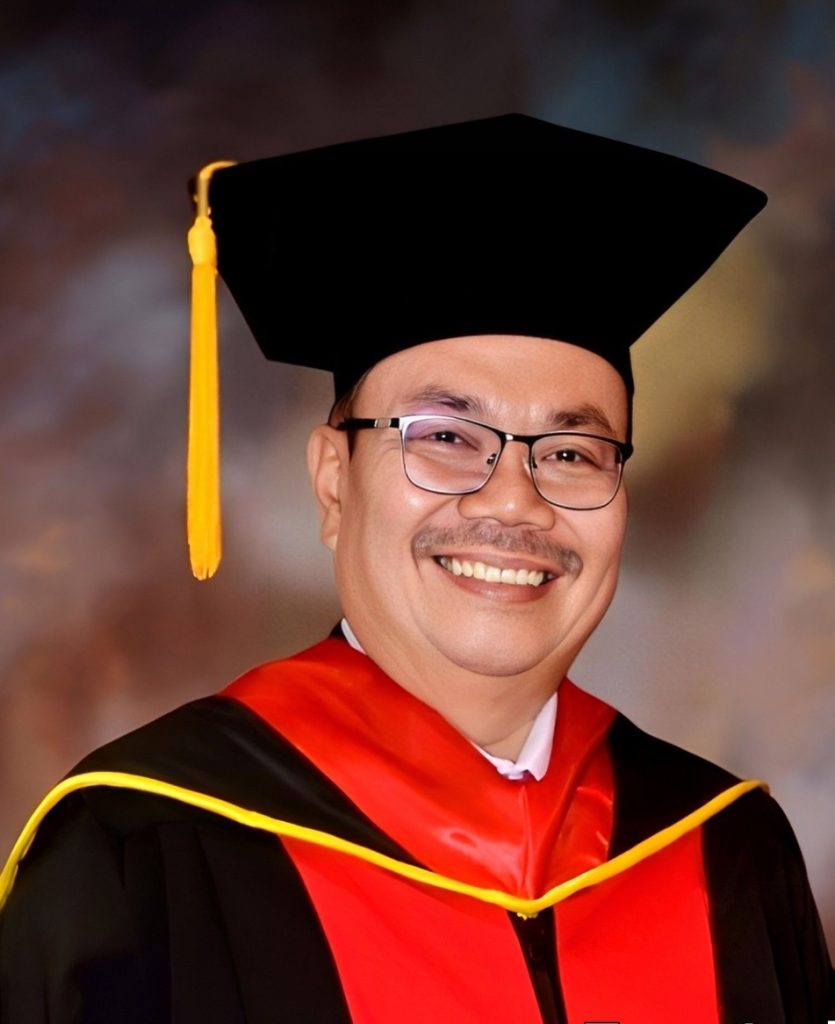
The Integrated Approach of Joko Ismuhadi Soewarsono: Bridging Tax Practice and Academic Innovation in Indonesia
- Ekonomi
Sunday, 13 April 2025 15:41 WIB
Jakarta, fiskusnews.com:
Joko Ismuhadi Soewarsono stands as a notable figure in Indonesian taxation, distinguished by his unique combination of practical governmental experience and rigorous academic pursuits. His current engagement as a PhD candidate in Accounting at Padjadjaran University, with a research focus on advanced tax planning and financial strategies, is significantly enhanced by his professional background as a tax auditor and supervisor within the Directorate General of Taxes in Jakarta [User Query]. This dual perspective enables him to effectively connect theoretical accounting and finance concepts with the on-the-ground realities of tax administration in Indonesia. A key aspect of his contribution to the field is the development and promotion of the Tax Accounting Equation (TAE), an innovative mathematical model designed to enhance both tax detection and planning capabilities [User Query]. This approach has attracted considerable attention, as evidenced by recent discussions on platforms like YouTube, which highlight its potential to modernize conventional accounting methodologies [User Query]. This report aims to provide a comprehensive analysis of Joko Ismuhadi Soewarsono’s work, verifying his professional affiliations, detailing his doctoral research, explaining the Tax Accounting Equation, summarizing public discussions surrounding it, listing his academic publications and research interests, and investigating the broader impact of his work on Indonesian tax policy and academic discourse.
Verification of Background and Current Roles
The available information confirms Joko Ismuhadi Soewarsono’s ongoing affiliation with Padjadjaran University in Bandung, Indonesia, where he is pursuing his PhD in the Department of Accounting. His profile on ResearchGate explicitly identifies him as a PhD student and also indicates that he holds a Master of Science degree. Furthermore, his current position is listed under Faisal Santiago’s Lab at the university. This active engagement in doctoral studies signifies a deep commitment to academic research and the advancement of knowledge within the field of accounting. Complementing his academic endeavors is his extensive experience within the Indonesian tax administration. His ResearchGate profile details his role as a Tax Auditor and Supervisor at the Directorate General of Taxes in Jakarta. This practical experience, gained through direct involvement in tax auditing and supervision, provides him with a firsthand understanding of the intricacies of tax laws, compliance challenges, and the methods employed in tax administration within the Indonesian context. The convergence of his academic pursuits and practical experience is a notable aspect of his profile. This combination is particularly valuable as it allows him to approach the study of taxation with a grounded understanding of real-world applications and limitations, while simultaneously bringing academic rigor to the analysis of tax-related issues and the development of potential solutions. This background positions him uniquely to contribute meaningfully to both the theoretical and practical aspects of taxation in Indonesia.
PhD Research Focus: Advanced Tax Planning and Financial Strategies
Joko Ismuhadi Soewarsono’s doctoral research at Padjadjaran University is centered on the critical area of advanced tax planning and financial strategies [User Query]. While the specific title of his dissertation is not explicitly available in the provided snippets, his affiliation with the Accounting Science Doctoral Program at the Faculty of Economics & Business at Padjadjaran University is confirmed. Furthermore, his listed skills and expertise on ResearchGate include “tax planning” and “financial engineering” , directly aligning with the stated focus of his PhD research. The domain of advanced tax planning encompasses sophisticated techniques and strategies employed by individuals and businesses to legally minimize their tax liabilities. These strategies can involve various methods such as tax-efficient investments, strategic use of deductions and credits, and the implementation of complex financial structures like trusts. Understanding these intricate planning mechanisms is crucial, especially in a landscape where tax regulations can be complex and subject to frequent changes. By focusing his research on this area, Mr. Soewarsono aims to delve into the theoretical underpinnings and practical applications of these advanced strategies. This research is likely informed by his experience as a tax auditor, providing him with insights into how these strategies are implemented in practice and how they are scrutinized by tax authorities. His academic exploration of financial engineering, which involves the design and development of innovative financial instruments and processes , further complements his research on tax planning. Financial engineering techniques can often be integral to the implementation of advanced tax planning strategies, allowing for the creation of complex transaction schemes aimed at optimizing tax outcomes. The knowledge gained from his doctoral research has the potential to contribute significantly to the academic understanding of tax planning and financial strategies, and could also inform the development of more effective tax policies and regulations in Indonesia.
The Tax Accounting Equation (TAE): Development and Formulation
A significant contribution of Joko Ismuhadi Soewarsono to the field of taxation is the development and promotion of the Tax Accounting Equation (TAE). This innovative mathematical model is designed as an analytical tool for examining taxpayer financial statements, with the primary objective of early detection of potential tax avoidance and/or embezzlement. The TAE is derived from the fundamental accounting equation (Assets = Liabilities + Equity) and the expanded accounting equation, which incorporates revenues, expenses, and dividends. The basic accounting equation represents the foundation of financial accounting, illustrating the balance between a company’s resources (assets) and its obligations (liabilities and equity). The expanded accounting equation further details the components of equity by including the impact of revenues, expenses, and dividends on retained earnings. For the purpose of tax analysis, particularly in scenarios where taxable income might be manipulated to be zero or negative, thereby affecting retained earnings and dividends, Mr. Soewarsono formulated the TAE as follows: Revenues – Expenses = Assets – Liabilities. This equation can also be rearranged to: Revenues = Expenses + Assets – Liabilities. The rationale behind this specific formulation lies in its focus on the relationship between the income statement (Revenues and Expenses) and the balance sheet (Assets and Liabilities). By analyzing this relationship, tax authorities can potentially identify inconsistencies that might indicate tax avoidance or other financial irregularities. For instance, if a company reports significantly low revenues or inflated expenses while simultaneously showing an increase in assets that is not adequately explained by changes in liabilities or equity, the TAE could flag this as a potential area requiring further scrutiny. This approach aims to provide a quantitative framework for the early detection of potentially misleading accounting transactions and to enhance the efficiency of tax audits.
Applications of the TAE in Tax Detection and Planning
The Tax Accounting Equation (TAE) developed by Joko Ismuhadi Soewarsono has several key applications in both tax detection and planning. For tax authorities, the TAE serves as a valuable tool for the early detection of potential tax evasion and avoidance. By analyzing the financial statements of taxpayers through the lens of the TAE, tax officers can identify discrepancies and unusual patterns that might suggest intentional misreporting for tax purposes. For example, the equation can help in spotting instances where revenues might be deliberately understated or expenses overstated, as these manipulations would likely result in an imbalance within the TAE when compared to the asset and liability sides of the financial statements. The TAE can also be instrumental in identifying potentially misleading accounting transactions, such as recording revenues as liabilities or expenses as assets, often through the use of clearing accounts. By highlighting these unusual inverse relationships, the TAE can act as a red flag, prompting tax authorities to conduct more in-depth investigations. Furthermore, the TAE is particularly relevant in analyzing transactions within group companies, especially those integrated from upstream to downstream. Financial engineering activities within such groups can be complex and sometimes designed to shift profits or inflate costs to minimize overall tax liability. Applying the TAE to the financial statements of these related entities can help uncover such potentially tax-avoidant transactions. Beyond tax detection, the TAE also has potential applications in tax planning for businesses. While not as explicitly detailed, the framework provided by the TAE could assist businesses in understanding the tax implications of different financial decisions. By recognizing the relationships highlighted by the equation, companies might be able to structure their transactions in a more tax-efficient manner while still adhering to tax regulations. The TAE is also recognized as a forensic accounting tool for Indonesian tax analysis. This designation emphasizes its utility in scrutinizing financial data to uncover evidence of past tax evasion or financial manipulation. The hope is that by utilizing the TAE in various case analyses, it can become a standard tool for Taxpayer Financial Statement Analysis across different business sectors, ultimately contributing to the Directorate General of Taxes’ efforts to explore and realize more optimal tax potential.
Public Perception and Discussion of the TAE
The Tax Accounting Equation (TAE) developed by Joko Ismuhadi Soewarsono has garnered public attention and sparked discussions, particularly on platforms like YouTube, highlighting its potential to modernize traditional accounting methodologies and address tax evasion in Indonesia. These discussions often center around the TAE’s role in combating Indonesia’s underground economy, which poses a significant challenge by hiding income and evading taxes. Dr. Joko’s work is presented in these forums as a crucial step towards addressing this issue, offering tax authorities valuable tools to identify and stop tax cheats. One key theme emerging from these discussions is the TAE’s capability for forensic analysis, which can uncover hidden transactions and expose financial manipulation. This is considered particularly important in the context of tax avoidance schemes where individuals or businesses attempt to exploit legal loopholes to reduce their tax liabilities. The TAE is often portrayed as an early warning system, enabling the detection of potential tax avoidance before it escalates into a major problem. Furthermore, the TAE is seen as a means to enhance audit efficiency by allowing tax auditors to focus their resources on cases identified as high-risk based on the equation’s analysis. It is also noted that the TAE can complement other forensic accounting techniques, such as data analytics, creating a more comprehensive approach to strengthening tax enforcement efforts. The potential of the TAE extends beyond Indonesia, with discussions highlighting its relevance for other countries facing similar challenges with tax evasion and a large informal economy. Adapting and implementing this tool in different contexts could prove invaluable in ensuring a fairer and more equitable financial system globally. However, these public discussions also acknowledge the limitations of the TAE. One major limitation is its reliance on the accuracy of financial statements; if a company engages in fraudulent bookkeeping, the TAE might not be able to detect it. Additionally, the TAE primarily focuses on quantitative data, and qualitative factors that can influence a company’s tax behavior might not be fully captured by the equation. Interpreting the results of the TAE also requires expertise in tax accounting and financial analysis. Despite these limitations, the overall perception in these public discussions is that the TAE represents a significant step towards greater financial transparency and fairness in taxation.
Academic Contributions and Publications
Joko Ismuhadi Soewarsono maintains an active presence in the academic community, as evidenced by his profile on ResearchGate. ResearchGate serves as a platform for researchers to share their work, connect with peers, and engage in broader academic discussions. His profile lists him as a PhD student within the Department of Accounting at Padjadjaran University. Through this platform, he has also made his academic contributions accessible to a wider audience. His publications listed on ResearchGate include two conference papers, both from January 2022: “Legal Protection for Default Debtors in Online Loan Agreements” co-authored with Faisal Santiago and Zudan Fakrulloh , and “Intellectual Property Rights on Traditional Knowledge” co-authored with Zudan Fakrulloh. Conference papers play a crucial role in academic discourse as they often represent early-stage research findings and provide a forum for researchers to present their work, receive feedback, and engage in scholarly exchange with their peers. The topics of his published papers demonstrate his engagement with contemporary legal and financial issues that extend beyond the immediate realm of taxation, indicating a broader academic interest in the intersection of law, finance, and technology. The research on legal protection for debtors in online loan agreements addresses a pertinent issue arising from the growth of financial technology, while the paper on intellectual property rights on traditional knowledge touches upon the complex legal and ethical considerations surrounding the protection of cultural heritage. These publications, alongside his ongoing doctoral research, highlight Mr. Soewarsono’s commitment to contributing to the body of academic knowledge in relevant fields.
Table: Joko Ismuhadi Soewarsono’s Publications
| Title of Publication | Type | Date | Co-authors |
| Legal Protection for Default Debtors in Online Loan Agreements | Conference Paper | January 2022 | Faisal Santiago, Zudan Fakrulloh |
| Intellectual Property Rights on Traditional Knowledge | Conference Paper | January 2022 | Zudan Fakrulloh |
Broader Research Interests
Beyond his specific PhD research on advanced tax planning and financial strategies, Joko Ismuhadi Soewarsono’s expertise and research interests span several critical areas within taxation and finance. His profile on ResearchGate lists “tax planning” and “scheme transaction” as key areas of his expertise. This aligns directly with his doctoral research and his practical experience in scrutinizing complex financial arrangements that may be designed for tax optimization or avoidance. His expertise in “financial engineering” is also highlighted. This field involves the application of mathematical and computational methods to solve financial problems and create innovative financial products and strategies. This knowledge is particularly relevant in understanding the sophisticated financial instruments and transactions that are often employed in advanced tax planning and potentially in tax evasion schemes. Furthermore, his research interests include “corporate finance and valuation”. Corporate finance focuses on how companies manage their funding and capital structure, while valuation involves determining the economic worth of assets and companies. This expertise is crucial for analyzing the financial health and performance of companies, which is essential in assessing their tax obligations and identifying potential discrepancies in their financial reporting. His interest in “mergers and acquisitions” (M&A) is also noted. M&A transactions often involve intricate financial and legal considerations, including significant tax implications [User Query]. Expertise in this area allows for a deeper understanding of how these transactions can be structured and their potential impact on tax liabilities. This broad range of research interests and expertise suggests a holistic understanding of the interconnectedness of law, finance, and taxation, enabling him to approach tax-related issues from multiple perspectives and develop comprehensive solutions.
Media Presence and Public Engagement
Joko Ismuhadi Soewarsono’s work, particularly his development of the Tax Accounting Equation, has garnered attention in various media outlets, indicating a commitment to public engagement and the dissemination of his research beyond academic circles. Several articles and news reports have featured his work, especially on platforms like Fiskusmagnews and Taxjusticenews. These articles often highlight the TAE as a “forensic tool” for Indonesian tax analysis and discuss its innovative approach to detecting tax evasion. Titles such as “Dr. Joko Ismuhadi’s Tax Accounting Equation: A Forensic Tool for Indonesian Tax Analysis” and “Corporate Financial Crime in Indonesia: An Analysis of Dr. Joko Ismuhadi Soewarsono’s Recent Work” indicate the focus on his model and its application in combating financial irregularities. Reports also cover his presentations and discussions on topics related to taxation and corporate finance, such as a webinar on the corporate life cycle. Furthermore, he is identified as a doctor candidate in both tax criminal law and tax accounting in an article discussing back-to-back loan transactions. The summaries of articles available reinforce the theme of his innovative approach to detecting tax evasion in Indonesia, suggesting that his work is being recognized for its potential to address significant challenges in the Indonesian tax system. This media presence indicates an effort to inform a wider audience, including policymakers and the general public, about his research and its potential implications for improving tax compliance and governance in Indonesia.
Impact on Indonesian Tax Policy Innovation
Joko Ismuhadi Soewarsono’s work, particularly the Tax Accounting Equation (TAE), holds significant potential for influencing tax policy innovation and administration in Indonesia. The TAE offers a novel, data-driven approach to identifying potential tax evasion and avoidance by analyzing the relationships between key financial statement components. This capability can provide tax authorities with valuable insights into the patterns and methods used by tax evaders, potentially leading to the development of more targeted and effective tax policies and enforcement strategies. Given Mr. Soewarsono’s background as a tax auditor and supervisor within the Directorate General of Taxes (DGT) , there is a strong possibility that his research and the TAE could be considered for adoption or to influence internal practices within the DGT. His direct experience with the challenges of tax administration provides a practical context for his academic work, making his proposed solutions potentially more relevant and implementable within the existing framework. Indonesia has been actively pursuing tax reforms aimed at improving tax compliance, increasing state revenue, and addressing issues like the underground economy. These reforms have included efforts to enhance tax administration, update tax laws, and leverage technology to improve tax collection. The TAE aligns with these broader objectives by offering a new tool for forensic accounting that can help identify high-risk cases and potentially uncover sophisticated tax avoidance schemes. By providing a framework for early detection, the TAE could contribute to a more efficient allocation of audit resources and ultimately lead to increased tax revenue for the government. The potential impact extends beyond just increasing revenue; by promoting greater financial transparency and accountability, the TAE could contribute to a fairer and more equitable tax system in Indonesia.
Contribution to Academic Discourse
Joko Ismuhadi Soewarsono’s work contributes to the academic discourse on taxation and financial governance in Indonesia through his ongoing PhD research and his publications. His research on the Tax Accounting Equation (TAE) introduces a novel mathematical model for analyzing financial statements from a tax perspective [User Query]. This innovative approach has the potential to stimulate further research and discussion within the academic community, particularly in the areas of forensic tax accounting and the application of quantitative methods in tax analysis. His engagement with contemporary legal and financial issues, as demonstrated by his conference papers on online loan agreements and intellectual property rights , also enriches academic discussions by bringing an interdisciplinary perspective to the study of taxation and related fields. These topics highlight the interconnectedness of law, finance, and technology, which are increasingly relevant in the context of modern taxation. Mr. Soewarsono’s work could inspire future research in several areas. For instance, further theoretical development and empirical testing of the TAE in different industries and economic contexts could validate its effectiveness and identify potential refinements. Researchers might also explore the integration of the TAE with other forensic accounting techniques and data analytics tools to create more comprehensive tax evasion detection systems. Additionally, his research could contribute to the growing body of literature on tax compliance and the challenges of tax evasion in emerging economies like Indonesia. By introducing a new analytical tool and engaging with relevant legal and financial issues, Joko Ismuhadi Soewarsono is playing a role in shaping the academic conversation around taxation in Indonesia and potentially influencing international research in this field. The development of the TAE offers a new lens through which to examine financial data for tax-related irregularities, contributing to the evolution of tax accounting theory and practice.
Conclusion
Joko Ismuhadi Soewarsono’s profile as an Indonesian tax specialist and academic is marked by a unique and valuable blend of practical experience within the Directorate General of Taxes and rigorous academic pursuits at Padjadjaran University. His ongoing PhD research focused on advanced tax planning and financial strategies, coupled with his background in tax auditing and supervision, positions him as a significant figure capable of bridging the gap between theoretical concepts and the practical realities of tax administration in Indonesia. His most notable contribution, the Tax Accounting Equation (TAE), stands out as an innovative mathematical model with the potential to modernize traditional accounting methodologies for improved tax detection and planning. Public discussions on platforms like YouTube underscore the perceived potential of the TAE in combating tax evasion and enhancing financial transparency. His academic contributions, including conference papers on diverse topics such as online loan agreements and intellectual property rights, demonstrate a broad engagement with contemporary legal and financial issues. Furthermore, his expertise spans critical areas including tax planning, financial engineering, corporate finance, valuation, and mergers and acquisitions. Media coverage of his work, particularly on the TAE, indicates a commitment to public engagement and the dissemination of his ideas. The TAE holds promising implications for Indonesian tax policy innovation by offering a data-driven tool for identifying tax risks and potentially informing the development of more effective tax policies and enforcement mechanisms. His work also contributes to academic discourse by introducing a novel approach to tax analysis that could stimulate further research and discussion. In conclusion, Joko Ismuhadi Soewarsono’s integrated approach, combining practical tax auditing with academic inquiry and highlighted by the development of the Tax Accounting Equation, signifies a dynamic and important contribution to the ongoing dialogue on financial and corporate governance in Indonesia.
Reporter: Marshanda Gita – Pertapsi Muda
Share
Berita Lainnya
Ikatan Akuntan Indonesia (IAI) menyelenggarakan Kursus Data Science
Tokoh Perpajakan Tahun Ini: Prof. Dr. Poltak Maruli John Liberty Hutagaol, SE., Ak., M.Acc., M.Ec. (Hons). CA.
Ismuhadi’s Equation: Analisis Kontribusi dalam Perpajakan Indonesia
Penegakan Hukum Pidana Pajak yang Lebih Adil dan Selektif
Jepang dan Inggris Resesi, Bos BI Cemas Ganggu Ekonomi Dunia
PT. Bina Indocipta Andalan Menyelenggarakan Webinar dengan Tema Teknik Pengisian SPT PPh Badan
LIPUTAN KHUSUS: Urgensi Pembentukan Badan Otoritas Penerimaan Negara Mengemuka di Forum ISNU
Rekomendasi untuk Anda

Berita Terbaru
Eksplor lebih dalam berita dan program khas fiskusnews.com
Tag Terpopuler
# #TAE
# #TAX ACCOUNTING EQUATION
# #TAX FRAUD
# #TAX EVASION












